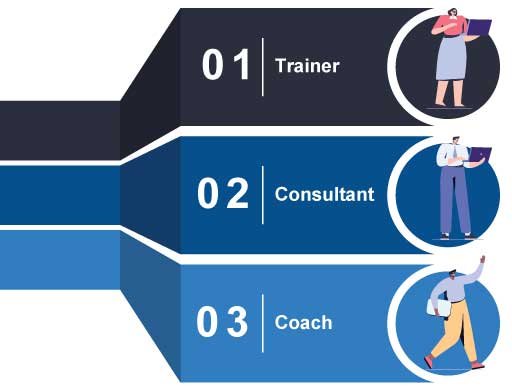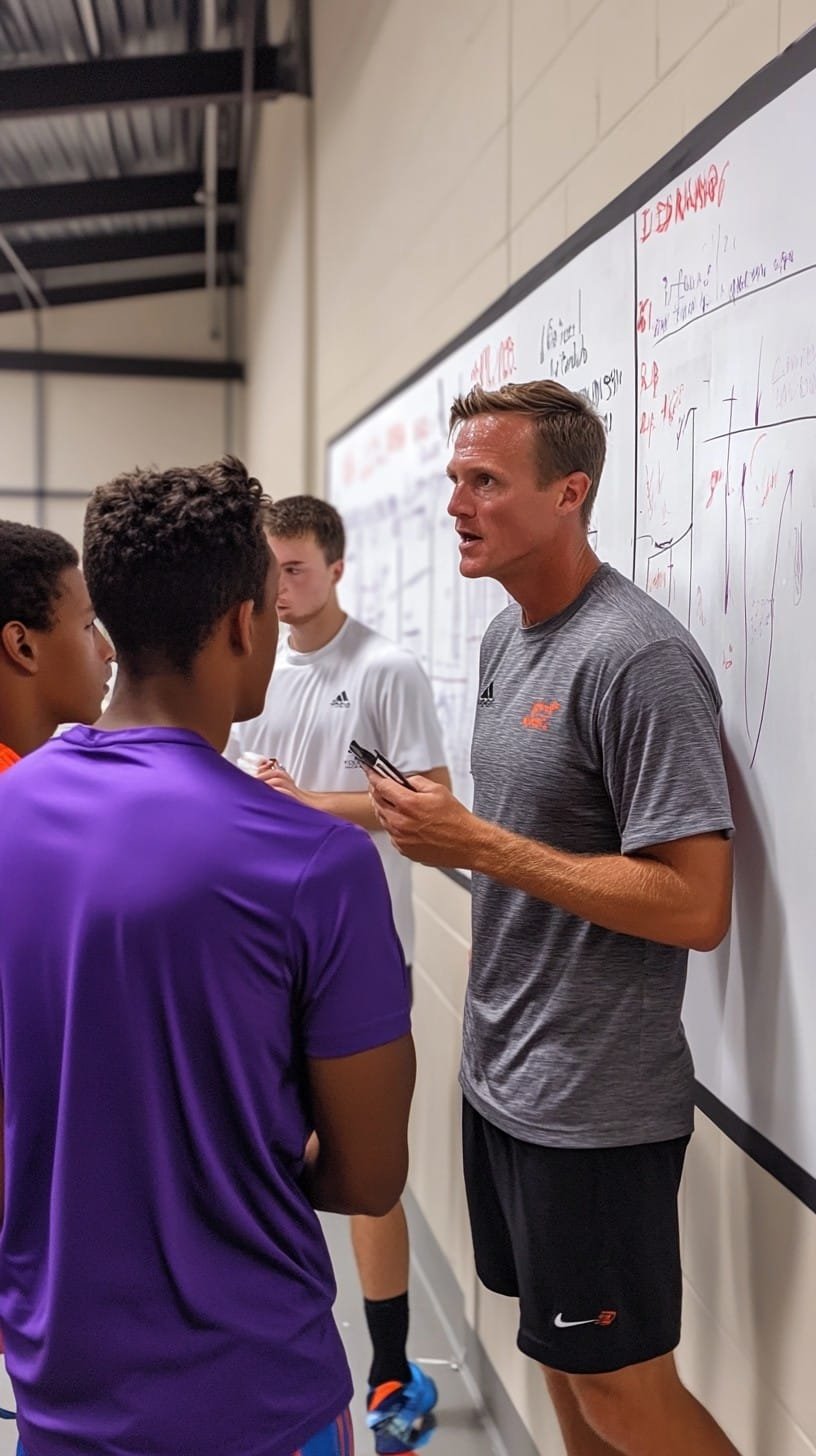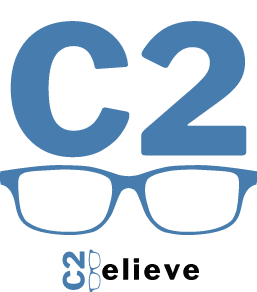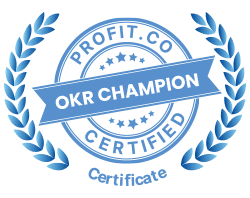🎧⠀Listen and follow
Introduction
Some companies struggle mightily to implement OKRs – and it’s no suprise. An OKR Coach is essential for a smooth transition and successful implementation. We explain here.
OKRs or Objectives and Key Results is a powerful goal-oriented framework and companies have used it to turn around their businesses – that said, you can’t expect it to be a plug and play tool. Even though the concepts are relatively easy to understand, it still requires commitment, dedication, practice and discipline.
It’s very much like starting an exercise program. It looks doable and feels exciting at first, but after a few cycles, the novelty diminishes and it’s easy to let off the gas.
So, what do you do? Get an OKR Coach.
New to OKRs, see “What is OKR?”
What’s the difference between a Trainer, Consultant and a Coach?
There’s a big difference – Trainers and Consultants are important, but they are temporary assignments for an organization. They convey information and advice, but their responsibilities typically end there.
Also, depending on the subject matter, training doesn’t have meaning without practical experience – there are many cases of companies sending their staff for training, only to get back to the company not knowing how to take the next step.
With OKRs you need a coach to guide you through the next steps.

A Coach is different – Sports and OKRs.
When you think of a coach, think about a sports team. A coach is responsible for team wins, making sure the team and each player is prepared – and this means providing the teaching, training and coaching, which is iterative monitoring, adjusting, and instilling good habits and disciplines.
An OKR coach is no different – they are hands-on and responsible for organizational wins.

See here “How to implement OKRs”
Why get an OKR Coach?
To become good at OKRs, you need to read important books and have a few practice cases under your belt – because if you don’t, you are bound to have several fails that might lead you to abandon OKRs altogether. As we mentioned, OKRs are easy to conceptualize, but there are nuances that will challenge you along the way.
For example:
- When you implement OKRs into a company, you are bound to get resistance from certain managers, how do you handle that?
- When your staff sandbags or low-balls their goal-planning, what do you say to them?
- When someone asks how do you know if OKRs are working, how do you respond?
- When teams are setting goals but are consistently not meeting them, what actions do you take?
There are many other examples of challenges that come up during implementation – but a good coach has been through most of the peculiar scenarios and people situations.
That said, you can fast-track OKR implementation with a Coach, and save time and avoid setbacks without having to learn things the hard way.
An OKR Coach is the CEOs right hand man.
Normally, the CEO is the initial push behind OKR implementation in a company and also becomes the chief OKR evangelist. However, we know that CEOs are extremely busy, and not always in the office – they could be gone for weeks at a time.
During the first cycles of implementation, it’s important to keep the OKRs going. When the CEO is offsite, the OKR coach becomes the interim evangelist, attending weekly OKR meetings, addressing OKR progress questions and issues, and generally maintaining the OKR cadence.
Also, the OKR coach and CEOs have one-on-one meetings and should be on the same page, to ensure mutual support when crisis arises.
The OKR coach knows how to connect the pieces and organize the data.
OKRs point the way for the company with strategic goal planning. But the execution of projects and tasks to reach those goals are done by disparate teams and individuals. RD may handle Product Development using Agile Scrum management. Manufacturing teams might apply Lean Six Sigma, another management framework. Finance and Accounting uses KPIs.
An OKR coach knows how to align and connect all the pieces, setup the appropriate reporting software and organize the information so that managers can drill-down for detail or collapse for perspective seamlessly throughout the organization.
See here “What is OKR vs Project Management“
External OKR Coach and the Internal OKR Master
The OKR Coach we’ve been referring to until now is the External OKR Coach contracted for a certain period with a company to implement OKRs. After the External coach departs, an Internal OKR Master/Coach takes over and ensures perpetuation of OKRs.
Leadership should assign an Internal OKR Master/Coach at the beginning of the implementation – the person works closely with the External Coach to absorb and master OKRs.
How long do you need an External OKR Coach?
Some say two OKR cycles, which comes to 6 months. Others say 6 months to a year. Some installations will work with an OKR Coach for up to 2 years.
The real answer is this – It depends on the company you are working with. Companies that have no management methodologies, or have a traditional top-down hierarchy might need those 2 years to adapt to a new paradigm. It also depends on how busy everyone is and what other aspects of the business that needs to be attended to for OKRs to work.
Otherwise, companies that have some goal-oriented, people-oriented framework in place, such as MBO or Balanced Scorecard, may have an easier time to adapt to OKRs.
Conclusion – An OKR coach is responsible for team wins.
Companies can attempt OKRs by themselves, but typically will struggle with implementation, inspite of training – and it’s not surprising. Teams must allow time to adapt to OKRs before they can apply it correctly.
External OKR coaches have gone through several installations and have dealt with the peculiar scenarios and challenging situations. Companies can take advantage of this experience to fast-track deployment and avoid the pitfalls.
A Coach is different than a trainer or a consultant – Coaches are hands-on, working closely with the CEOs, teams and individuals over several cycles, teaching, training and coaching OKR ideology, strategy and discipline for one goal – organizational wins.

References:
The OKRs Field Book – A Step-by-Step Guide for Objectives and key Results Coaches – Ben LaMorte (2022)










0 Comments